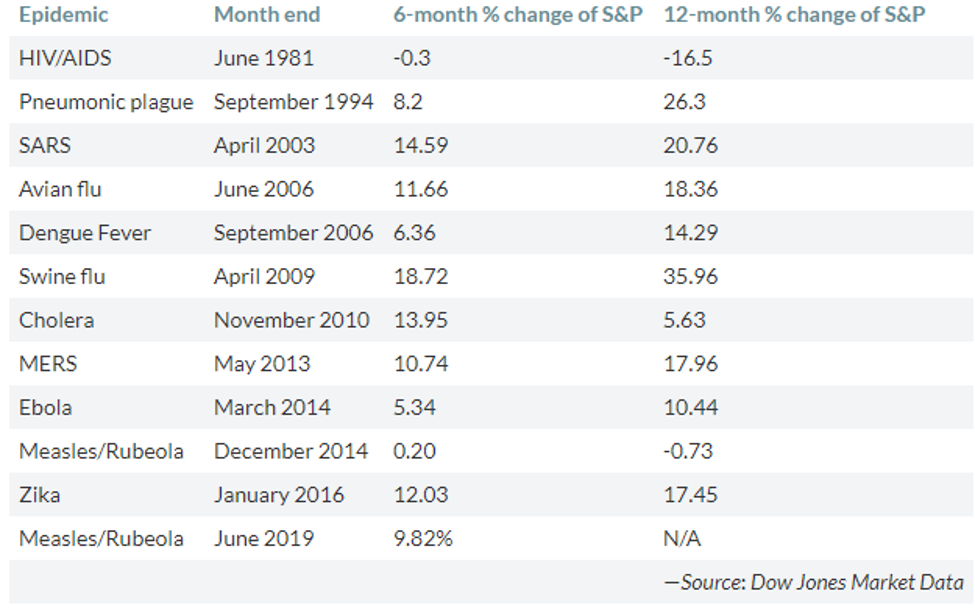The irony is that just last week I put out a blog on what war does to the markets. When I wrote it, concerns about Iran were elevated. When it posted a few weeks later, it almost felt like dated news. Today no one’s talking about a potential war, rather we have a new headline soaking up our news bandwidth—the Coronavirus.
(Que the scary music.)
As I write this, the markets are heading into their second straight day of free fall. Almost every year I write a few blogs in a similar theme—reflections on big market-moving news. Here’s what we currently know about the virus and my thoughts relating to the markets, as well.
For starters, the Coronavirus is common among animals and can be spread to humans from certain interactions. From there, it can be passed person to person through many forms of secretions. A cure is estimated to occur in about 6-12 months. As I’m writing this, there are 80,421 known cases, which have led to 2,711 deaths and 27,909 fully recovered. In the scheme of things, this isn’t as deadly as SARS or MERS was according to the experts.
A vast majority of deaths are in the elderly who develop pneumonia and thus it leads to death. I’m not saying this isn’t serious, but I wanted to give some perspective and I’m certainly not a doctor (although I play one on tv). Here is a live link of those affected.
Now that we got a quick synopsis of the virus, what is going on with the markets? Why are they suddenly in a decline?
For starters, and as I’ve stated before, the markets don’t like uncertainty. We don’t know how many will be affected outside of China and what the impact on global production will be. China is a massive piece to the global economy and if this virus continues to put a damper on their ability to consume and produce goods from all over the world, one would expect corporate earnings to be hurt. Here in the U.S., we don’t expect this to be a huge factor beyond short-term volatility. The U.S. economy is very much driven by the consumer and we don’t see this impacting U.S. consumers all that much.
Our general expectation is that this’ll be a temporary selloff as it doesn’t seem to be heavily linked to any other global fears. In fact, around 70% of corporate earnings have outpaced expectations. We tend to believe this is being used by some investors as an opportunity to sell some of their gains, rather than an indicator of global recession. In times like these, you’ll see the market shift to safe haven assets like bonds. As a matter of fact, bonds have performed well during the past few days as one would expect.
To calm any fears out there let me first offer up this nifty little chart I found from the Dow Jones Market Data:

Pretty telling stuff, right? Doesn’t mean we’ve hit the bottom of this thing or we won’t see further volatility. What it shows us is these things typically have a short-term market affect. Generally, longer-term downturns are typically linked to larger global issues.
It also teaches us that having a proper plan, some good guidance, and an asset allocation that fits one’s circumstances is the best remedy. It’s proven to be nearly impossible to guess what the markets will do next; thus, we maintain our position of recommending regular check-ups with your advisor as the best way to assure your portfolios are equipped to meet your needs.
In summary, I’m sure I’ll have another few blogs this year talking about the newest market concern. I can assure you the message will be the same although I do enjoy educating you as to help calm any fears. Be safe and stay focused on what matters!

